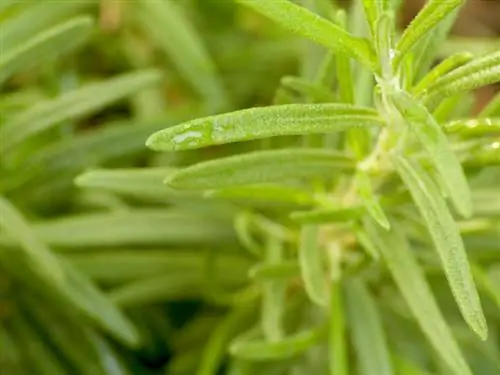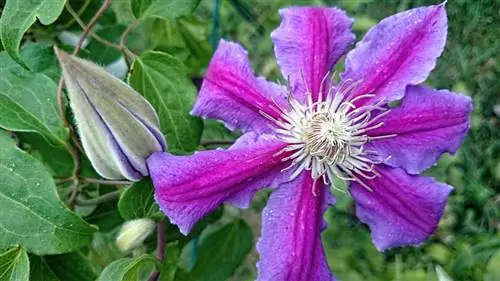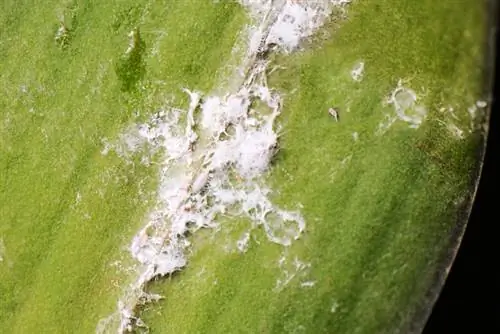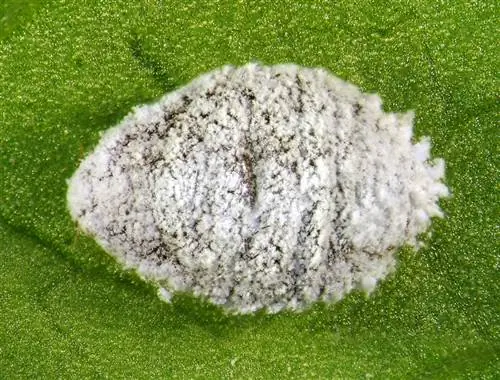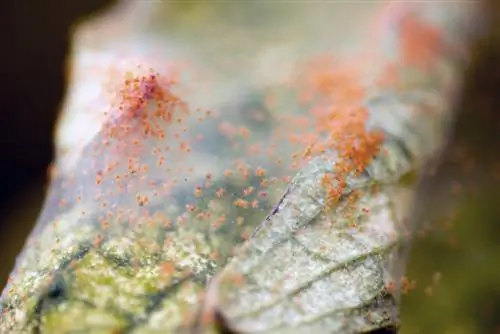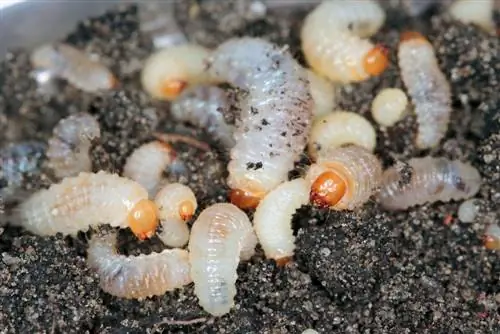- Author admin [email protected].
- Public 2023-12-16 16:46.
- Last modified 2025-01-23 11:20.
Rosemary is often attacked by various leaf sap-sucking plant lice. Pests such as mealybugs and scale insects in particular often appear towards the end of winter, when the plant is already weakened and can only offer little resistance.
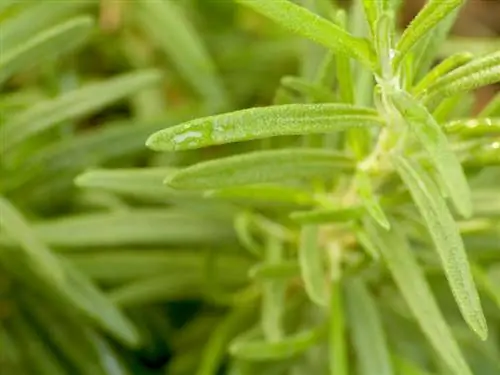
How to fight lice on rosemary?
Answer: Home remedies such as nettle broth or soft soap solution can be used to combat lice on rosemary. If the infestation is severe, affected parts of the plant should be cut off and the entire plant wiped thoroughly with a damp cloth soaked in water, soft soap solution or spirit.
Aphids on rosemary
In the case of aphids, they are quite small insects, only a few millimeters long. They rarely have wings, but they do have a proboscis with which they pierce the leaf from the underside and suck out the carbohydrate-rich plant sap. Their highly sugary excretions, the so-called honeydew, attract numerous other pests, such as ants. In addition, the sticky substance is often colonized by the sooty mold fungus, which covers the leaf with a black, greasy layer.
How do you recognize an aphid infestation?
- Rosemary grows poorly.
- Rosemary drops leaves and buds.
- Cripple the leaves
In addition, the pests, usually black in color, are usually easy to see with the naked eye. A strong nettle decoction has proven itself as a home remedy against aphids, but it has to be used several times and spread over a few days. Soak about a kilo of freshly harvested and finely chopped nettles in about 10 liters of water and let the mixture steep for about a day. The plant's nettle toxins are released. Furthermore, the aphids can also be eliminated using a soft soap solution.
Mealybugs and mealybugs on rosemary
Mealybugs or mealybugs are quite easy to recognize. The tiny, white to pink animals are surrounded by a protective cover that looks quite similar to a cotton ball. This cover protects them from predators and also from the cold. Mealybugs are very harmful to an infected plant. Not only do they feed on plant sap and thus weaken the plant, but they also release a poison. Like aphids, mealybugs excrete honeydew, which attracts further insect pests and fungi. The animals love dry and warm air, which is why they often attack rosemary that has been overwintered too warm.
Fighting mealybugs with home remedies
As a first step, you can cut off heavily infected parts of the plant; the rest of the plant is then held upside down under a strong jet of water and rinsed off. Then take a clean cloth and soak it in a soft soap solution or spirit. Thoroughly wipe the entire plant with this cloth. The treatment should be carried out several times so that you really catch all the lice and their eggs.
Tips & Tricks
Plant lice primarily attack already weakened plants that are no longer able to defend themselves due to care errors, an incorrect location or a place that is too warm for overwintering. As a preventive measure, keep the humidity as high as possible, e.g. B. with the help of a spray bottle.

